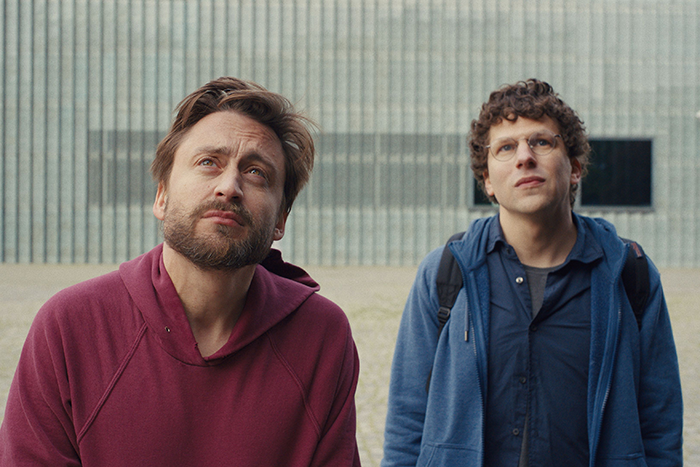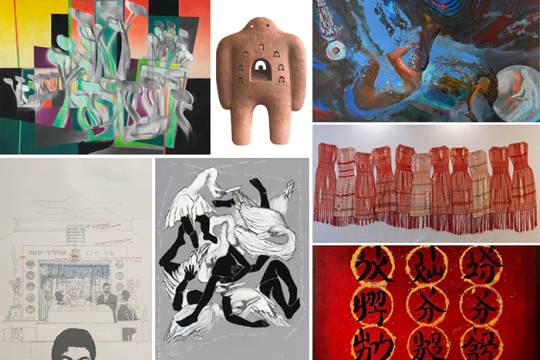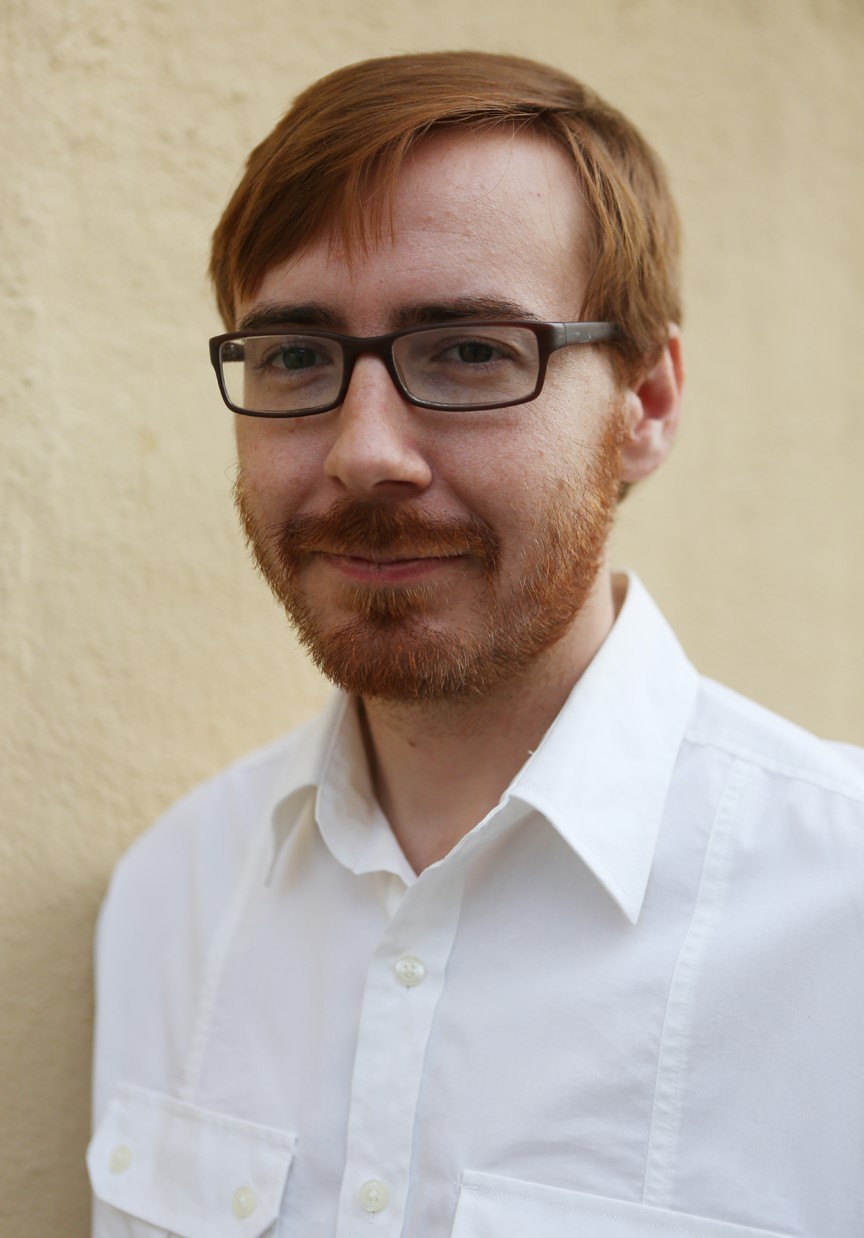
Fresh off winning an Emmy for his portrayal of Roman Roy in the hit HBO series "Succession," Kieran Culkin finds himself playing another motormouthed man child at the center of Jesse Eisenberg's "A Real Pain." Culkin's Benji, presumably entering his 40s, is drifting through life, trading in a ratty couch in his parents' basement for a similarly sparse living situation in upstate New York. After the death of his beloved grandmother, Benji finds himself joining his cousin, David (portrayed by Eisenberg), on a tour of Poland to reconnect with each other and discover their grandmother's experiences during the Holocaust.
Benji and David are more like brothers than distant cousins, sharing a playful familiarity after spending their entire childhood together. However, they couldn't be more different. Benji is a loose cannon, barreling through life like he's trying to gorge through a twelve-course meal. David is a jumble of nerves, wound so tightly that he can barely bring himself to make authentic connections with others.
The cousins find themselves joining a small tour group in Warsaw, Poland. The tour is led by over-eager British historian, James (Will Sharpe), and consists of a medley of participants, each with their own reasons for undertaking a Holocaust-centric journey through Europe. There's a recent divorcee who wants to reconnect with her Jewish roots (Jennifer Grey); an older couple whose ancestors got out before the war (Liza Savoy and David Oreskes); and a survivor of the Rwandan genocide (Kurt Egyiawan), who has converted to Judaism and identifies with the experiences of Holocaust survivors. It's something of an understatement to say that the rest of the group seem much more grounded than either Benji or David.
Eisenberg, most prominently known for playing Mark Zuckerberg in "The Social Network," has made a name for himself portraying brilliant, emotionally comatose geniuses. He has steadily added to his oeuvre as a playwright, director, and fiction writer. His plays include "The Spoils" and "The Revisionist" (also about revisiting his ties to Poland).
Eisenberg based "A Real Pain" on his own experience of visiting Poland and finding the tiny house where his aunt lived before being displaced by the Nazis. He said the story came together after he saw an advertisement online promising "Holocaust tours (with lunch)."
If the "with lunch" part of that statement feels a little dubious, then prepare yourself. While not exactly an evisceration of the tour - which proceeds from place to place almost like a checklist, replete with good meals and cozy accommodations - "A Real Pain" attempts to examine the contradictions involved in such an undertaking.
For example, Benji cajoles his fellow tourists to pose amongst the bronze statues of resistance fighters in a monument to the Warsaw Uprising, contorting themselves in silly combat poses. The moment is at once highly relatable but more than a touch disrespectful to the 150,000+ people killed in the fighting. Prone to wild mood swings, Benji later has a meltdown when he realizes he's in the first-class cabin of a train leaving Warsaw. He admonishes the group telling them, "We're Jews on a train in Poland. Think about it… 80 years ago we would've been packed in like cattle." In these moments, you can almost feel Eisenberg speaking through Benji.
The group eventually reaches the apotheosis of the tour, a visit to the former concentration camp Majdanek, just outside Lublin. In a sequence that transcends storytelling, Eisenberg simply allows the characters to silently bear witness to the outbuildings, the showers, the ovens. Even on a carefully curated trip, there's no diminishing the power of visiting such a place. In a way, Eisenberg inadvertently pushes back on his own critique of "dark" tourism. Maybe it is worth it after all.
Despite its seemingly heavy subject matter, this film is funny. Very funny. It has a consistently light touch. Chopin breezes over picture-perfect scenes of Polish architecture and the banter between the cousins is always a delight.
"A Real Pain" doesn't present any easy answers about the Holocaust or for its two main characters. Benji obviously suffers from mental health issues; David is on medication for OCD. They both have struggles, despite growing up well off in Brooklyn. It's never elaborated as to whether this is generational trauma or some other kind of wound, but as the title says, the pain is real.
In theaters November 1.
Related Posts

Children of Ruth: Artists Choosing Judaism

Poems of Sorrow and Hope

